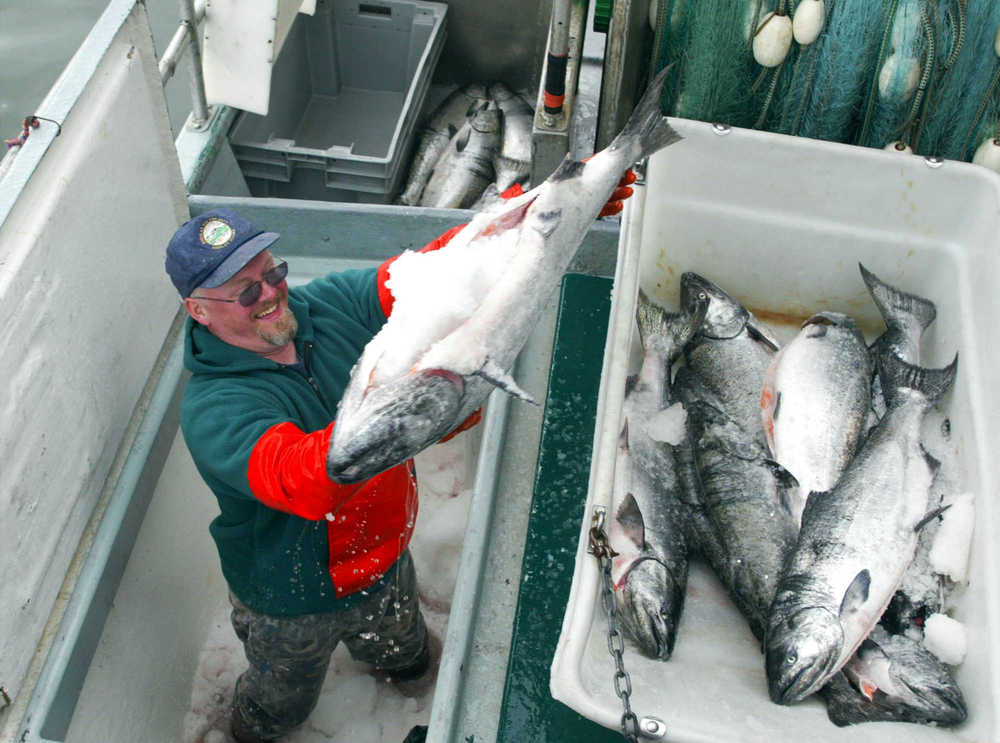ANCHORAGE, Alaska — Tribal organizations and fishing groups in Alaska are urging federal fishery managers to drastically reduce the number of king salmon allowed to be inadvertently caught by commercial pollock trawlers each year.
The coalition wants the allowable caps of chinook salmon cut by 60 percent in western Alaska rivers during times of weak runs. The groups say scores of Alaska Native subsistence fishermen are forced to go without much of their traditional and critical source of food because of tight restrictions imposed during poor salmon runs in recent years.
“You don’t see any activities of people going out fishing for salmon like they used to,” Myron Naneng Sr., president of the Association of Village Council Presidents, said Thursday. “In essence, the family structure is being destroyed because of this lack of activity.”
The groups made the request in a letter sent this week to the North Pacific Fishery Management Council, which is looking at the issue in Anchorage next week. The reduction is among alternatives proposed by the state in response to a 2013 evaluation that found room for improvement in the council-approved program overseeing the caps and industry incentives for reducing the number of salmon incidentally caught, said Nicole Kimball, the federal fishery coordinator.
Other alternatives proposed by the state include shortening the pollock season and strengthening incentives to reduce bycatch.
The state also initiated the caps, which were implemented in 2011 along with the industry incentives.
The program allows an annual cap of nearly 47,600 fish and an upper limit of 60,000 kings no more than twice in seven years.
The coalition seeking the reduction says the status of king salmon stocks has reached crisis proportions despite the closure of river fisheries.
Industry representatives, however, say the harvest of king salmon bycatch has never come close to reaching those limits. They also say some of the salmon caught is frozen and distributed through food banks.
The caps, adopted by the federal fishery council in 2009, have gone a long way to stemming the number of kings caught, said Brent Paine, executive director of Seattle-based United Catcher Boats.
The organization represents 72 boats that fish commercially for pollock in the Bering Sea.
The worst year for bycatch was 2007, when 120,000 kings were incidentally caught, Paine said. In comparison, 15,020 kings were caught last year, 13,032 were caught in 2013 and 11,266 were caught in 2012, he said.
“The pollock fishery is doing everything it possibly can to minimize the salmon bycatch,” he said. “The pollock fishery and the boat owners and the captains are all very, very well aware of the crisis that is occurring in these communities in western Alaska that are dependent on chinook.”

